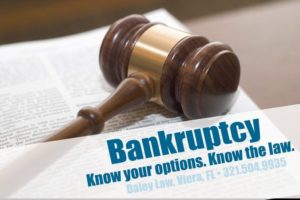Congress has made it more and more difficult to discharge student loans in bankruptcy.

Prior to 1977 student loans were discharged like other unsecured debt in bankruptcy. In 1977 student loans incurred within five years of the bankruptcy were non-dischargeable unless payment of the loans would cause undue hardship. Non-discharge-ability was subsequently extended to student loans incurred within seven years of the bankruptcy. In 1998 all student loans regardless of when they were incurred were non-dischargeable absent a showing of undue hardship.
So today you must show “undue hardship” in order to discharge student loans in bankruptcy. This is a very difficult test to satisfy.
First, you have to show that you cannot pay the student loans and maintain a minimal standard of living. Living below poverty is not required but would satisy this prong.
Second, you have to show that your dire circumstances will persist for an extended period. In other words must show a certainty of hopelessness. A physical or mental disability may satisfy this requirement. The Court also will consider level of education, quality of education, underemployment, and remaining working years (age).
Third, you have to show that you made a good faith attempt to repay the student loans. Particpation in a repayment plan is not required but certainly helps. The Court also looks at attempts to maximize your income.


